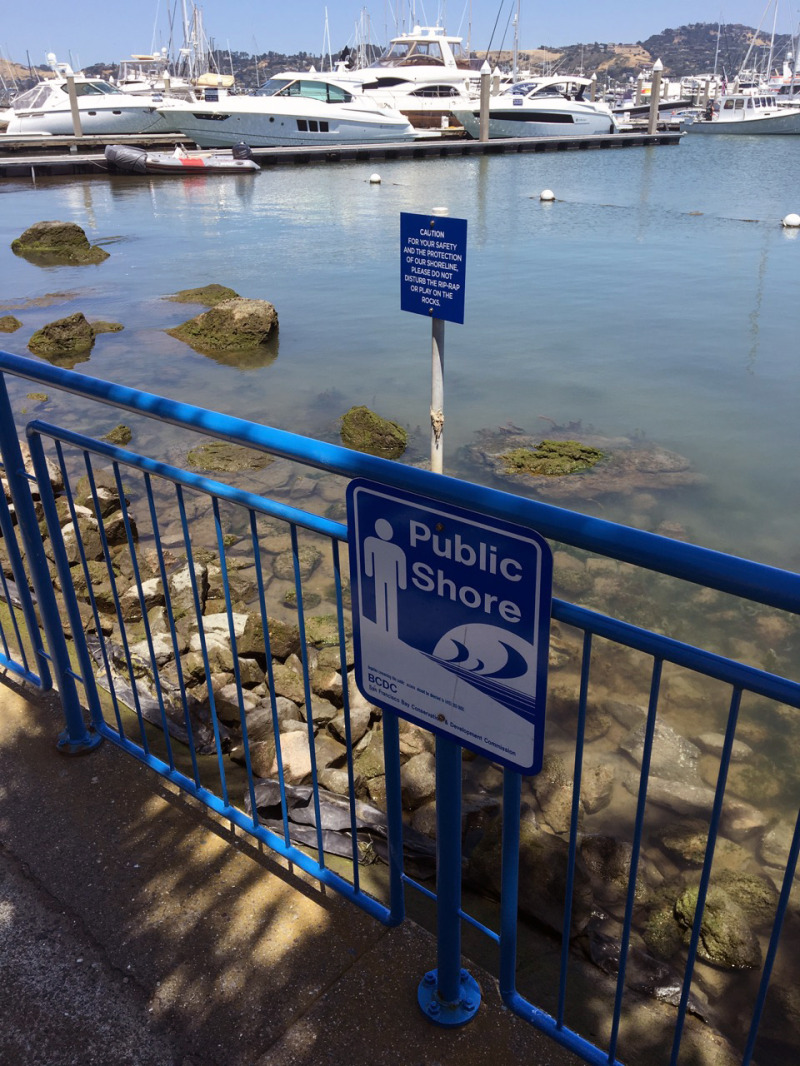
State to Audit BCDC
After years of complaints about overzealous excessive, confusing and unfair and enforcement, on Wednesday, the state of California approved a request from a bipartisan coalition of state legislators to audit the Bay Conservation and Development Commission (BCDC).
Over the next year, the California State Auditor will evaluate the BCDC, which is responsible for regulating waterfront businesses and residents. The audit is the result of a number of constituent complaints throughout California — but especially in the Bay Area — over the BCDC’s enforcement practices. which was led by
“It’s nothing against their overall mission, but there have been a number of examples of overzealous enforcement,” said Hugh Bower, the chief of staff for South San Francisco Assemblymember Kevin Mullin, who leads the bipartisan coalition. Bower used the now-famous example of Scott’s Seafood being cited for having the wrong size and color table and chairs. “But we want to emphasize that in no way do we want to limit the core mission of the BCDC,” Bower told us.

“This is not a criminal investigation,” Bower added, saying that an audit is a review of how an agency is functioning and operating. “It’s kind of a healthy thing to do from time to time for different state agencies.”
In the run up to recommending an audit, Assemblymember Mullin’s office said they explored the public record and spoke to permittees, identified a pattern between separate cases, and noticed a common tactic of imposing maximum fines and penalties. This led to the push for a comprehensive review of the BCDC enforcement.
“Some permit holders perceive BCDC staff as motivated by a desire to obtain the biggest possible fine with punitive enhancements, rather than achieving a result that is best for the environment and the public good,” read a letter from the coalition of state legislators to the Joint Legislative Audit Committee (JLAC), which gave the go-ahead for the audit on Wednesday. “[Permit holders] describe the unwillingness on the part of the BCDC staff to look at the big picture and negotiate for those outcomes.”
The letter went on to describe something that we’ve heard over the past few months — that people doing business with the BCDC are often afraid to speak out. “Individuals have stated that they felt the enforcement process became personal when permittees pushed back against the claims contained in BCDC staff reports. Most troubling is that permittees have expressed to legislative staff their concern about ‘going on the record’ for fear of BCDC retaliation. This was reinforced when permittees were informed of the need to have public testimony in support of this request for an audit, and permittees declined.”
Generally speaking, an audit can have a number of possible outcomes. In some cases, an agency can be found to be operating perfectly. In other cases, an audit can result in recommendations made by the auditor; the agency in question can implement those recommendations on its own, or it can “push back.” Some audits reveal that an agency is following the letter of the law, but that the law itself needs to be amended. This is where a “legislative” fix might be necessary.

©2018 Latitude 38 Media, LLC
BCDC Executive Director Larry Goldzband told Latitude in an email that the agency “looks forward to the audit.” In an August 3 letter to the coalition of state legislators, Goldzband explain that, “During the past few years, BCDC has reinvigorated its enforcement program.” Before he was executive director, Goldzband was a BCDC commissioner, and said he was “frustrated by what appeared to be an inconsistent, scattershot, and ineffective enforcement program. When I applied for the position of BCDC Executive Director, I stated . . . that the BCDC needed to ‘adopt an enforcement strategy that is robust, timely and fair . . . We look forward to the State Auditor providing constructive input about how we can improve and revitalize the program even more.”
The coalition of state officials that pushed for the audit includes Democrat Mullin, Republican Assemblymember Marie Waldron from Escondido in San Diego County, Democratic State Senator Jerry Hill, and Democratic Assemblymember Marc Berman from Palo Alto. In the June 29 letter to the JLAC, the coalition said that, “State legislative staff reviewed the 10 BCDC cases that have been brought to the Enforcement Committee since 2016. In many of those cases, it appears that seemingly minor alleged violations of an ancillary nature received the same weight and consideration as serious alleged violations that may actually be causing serious harm to the environment. The current BCDC approach appears to involve alleging every possible permit violation, no matter how minor, and demanding penalties at the maximum $30,000 as allowed by the current law. Permit holders are confronted with potentially hundreds of thousands of dollars in penalties.”
The letter went on to say that records showed that “permit holders have raised concerns about the [BCDC] staff as follows: an inconsistent application of standards, lack of proper record keeping by BCDC, bias on the part of BCDC staff, and instances of BCDC staff ‘moving the goal posts,’ by changing requirements after permittees had worked to satisfy requirements previously set by staff.
“We are concerned that the actions of BCDC erode public trust in the organization.”
We will continue to report on this issue as it develops. As always, we’d like to know what you think.
This story has been updated.
